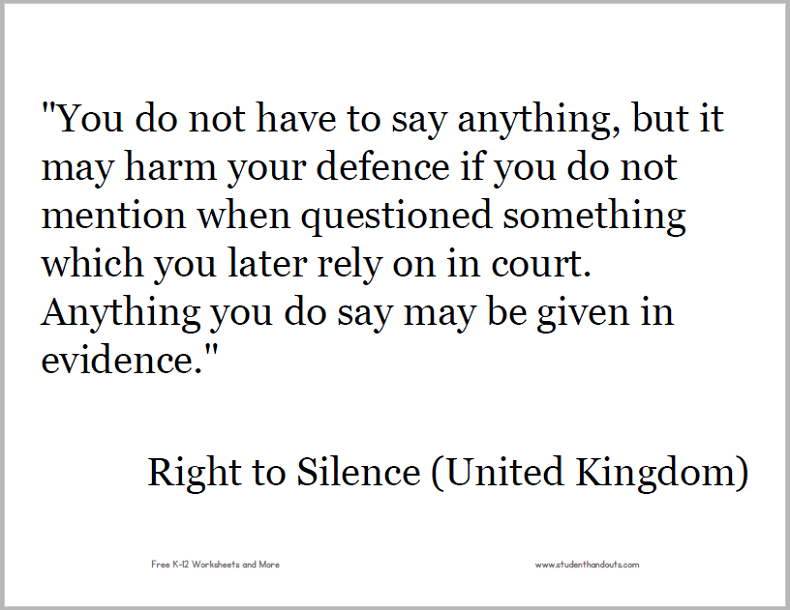| "Right to Silence"—British Version of Miranda Rights |
|---|
| World Geography ↣ European Geography ↣ Northern Europe ↣ United Kingdom |
| In England and Wales, the police make the following statement when arresting a person: |
 |
|
"You do not have to say anything, but it may harm your defence if you do not mention when questioned something which you later rely on in court. Anything you do say may be given in evidence."
Click here to print (PDF file). This statement is very similar to the Miranda Rights read to those under arrest in the United States. So what's the difference? The Fifth Amendment of the U.S. Constitution states that no one must incriminate himself or herself. Those under arrest in the United States have the "right to remain silent" which "cannot be held against (them) in a court of law." That is, the "smart move" in the U.S., when arrested, is to keep one's mouth shut and ask for a lawyer. Once a suspect or arrestee has requested an attorney, police must cease all questioning. It seems like, in Great Britain, a person under arrest has to come up with an alibi or "defence" (defense in the U.S.) pretty quickly, because if they present a defense in court which they didn't present when questioned by police, the prosecutor has the ability to bring this up, making it appear as if the defendant took time to craft a lie for use as an alibi. American audiences of the popular television program Law and Order UK have grown accustomed to hearing Great Britain's "Right to Silence" read aloud. Comparing these two statements given to arrestees offers a great opportunity for Civics teachers to have their students compare and contrast these two crucially important doctrines. While American law (particularly tort law), as well as constitutional rights like habeas corpus, have their roots in British law, students should be aware of the extra protections contained within the U.S. Constitution. |
 |  |  |  |  |
| World Geography ↣ European Geography ↣ Northern Europe ↣ United Kingdom |














































